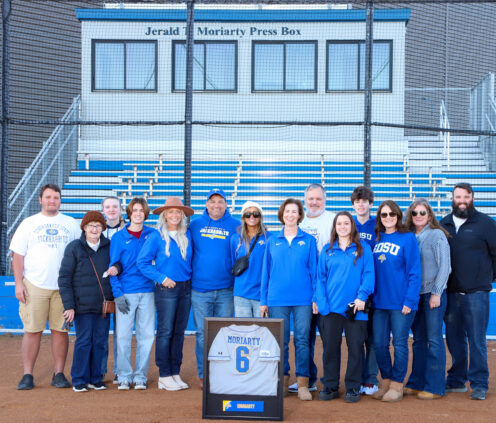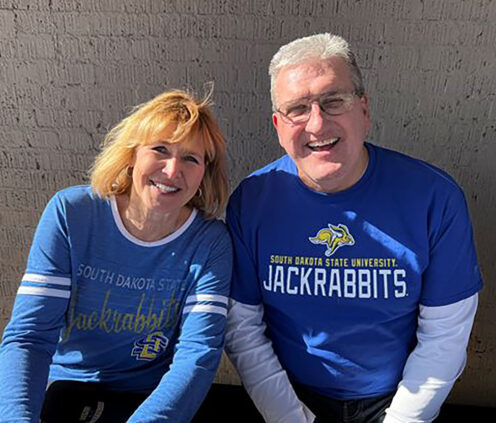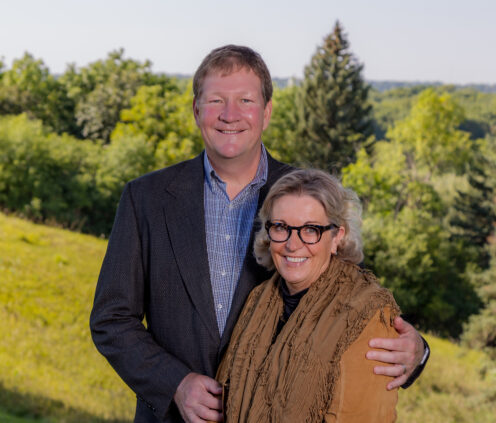The Ripple Effect
In the wake of tragedy, Trevor Peterson established a research award to fuel the work his daughter believed in most.
When it comes to making a positive impact on the world, change often comes in waves.
Those waves can form from the smallest of movements, set about by a driving force bold enough to go against the tide. Though the waves of change might start with a single source, the momentum inspired by just one person can create a ripple effect – and SDSU grad Erin Peterson left a tremendous ripple effect in her wake. Through the Dr. Erin Peterson Research Award in Wildlife and Fisheries established in her memory, Erin’s legacy will continue to buoy countless Jackrabbits who share her fascination with the natural world.
During Erin’s childhood, all signs pointed to her being a mover and a shaker. Her father, Trevor, recalls a daughter who was constantly exploring outside, creating intricate sketches of all things creepy and crawly: images of spiders, bats, insects, and worms adorned Erin’s bedroom walls, much to her sister’s disgust. A majority of family time was wrapped up in season passes at zoos and local parks as Erin absorbed all she could learn about animals and nature.
“She was an amazing, amazing kid,” Trevor remembers. “As she was growing up, so many people admired her, even adults. Erin was always there for everybody, in everything she did.”
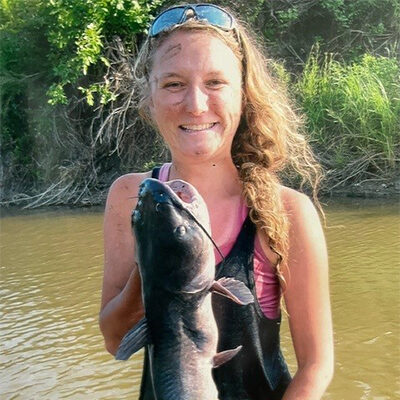
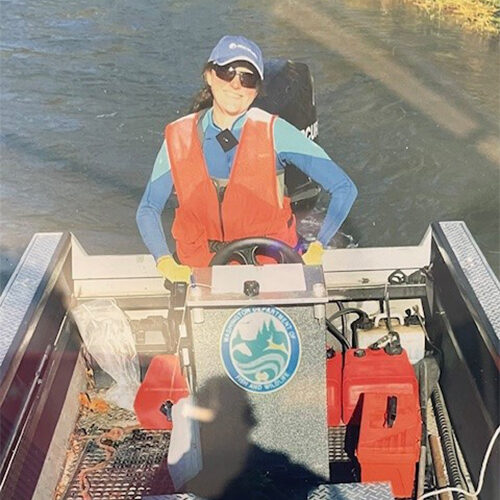
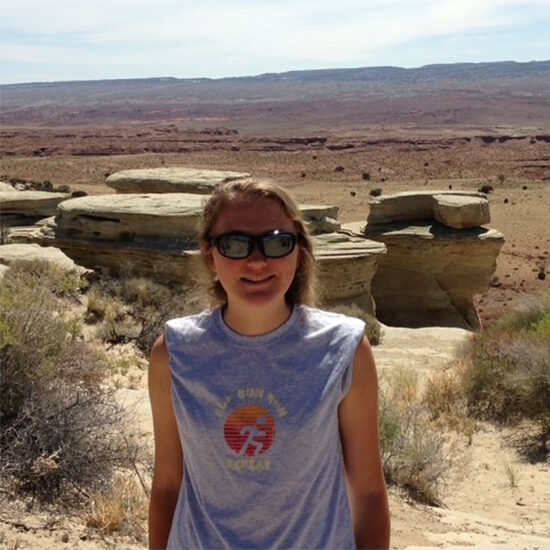
In addition to investigating the great outdoors, she was equally passionate about helping others. Following high school, Erin kept up a packed schedule of volunteering, forever generous in giving her time. Throughout her life, she worked at food banks, taught Sunday School, established a community garden, and even tutored her undergrad classmates in statistics – there was no formal tutoring program; she simply wanted to help others who were struggling.
With such a busy roster of outreach and giving back, it’s a wonder Erin found time to pursue her true calling, yet it was a pursuit she continued every day of her life: studying and protecting the miracle of the natural world. Her journey in higher education began at Oregon State University, where she graduated in 2014. Her family originally hailed from the Midwest in North Dakota, and Erin seized her chance to carry on her studies across the country, setting off for her next chapter at South Dakota State University.
At State, Erin earned her master’s in wildlife and fisheries sciences, forging connections with her peers and conducting field research that only furthered her interest in natural ecosystems. As part of her degree through SDSU, she toured through the Badlands of western South Dakota, studying streams and local waterways. Trevor could see that it was the first time in Erin’s life that she’d been chosen as a leader for a project, and she rose to the occasion with flair, assembling a group of both undergraduate and graduate students to help her carry out research. It was Erin’s responsibility to meet with landowners and properties to gain permission to explore sites of interest, paving the way for a project that would prove transformational for her.
“I’m a believer that you get to college and there’s always one professor, one class, one experience, that can shape your life and change your life,” Trevor explains. “That’s what it’s all about.”
The troupe spent their days analyzing water sources and creeks, studying the wildlife and, in particular, the aquatic insects that inhabited the streams. In the evenings, Erin’s team camped and slept under the stars, unwilling to miss out on a minute of the experience. After a lifetime of being an outlier with her love of nature – even the unpleasant or unconventional parts of it – Erin had finally found her tribe, connected by the same avid fascination.
“For Erin and everyone in the field, fish and wildlife is not about sitting in a classroom or listening to lectures. It’s about getting out there, doing the work that needs to be done,” says Trevor. “Everyone in that field is mission-driven and loves what they’re doing.”
After graduating SDSU in 2017, Erin’s collegiate career wasn’t over yet. With her expertise in all things natural science now spanning the country, she set off for the University of Maine to earn her Ph.D. Not long after, she and her husband, Mark Owens, welcomed two daughters, Victoria and Athena. When Erin landed her dream job working as a biologist for the Washington Department of Fish and Wildlife, the family embraced the opportunity to pack up for the West Coast, intent on their next adventure.
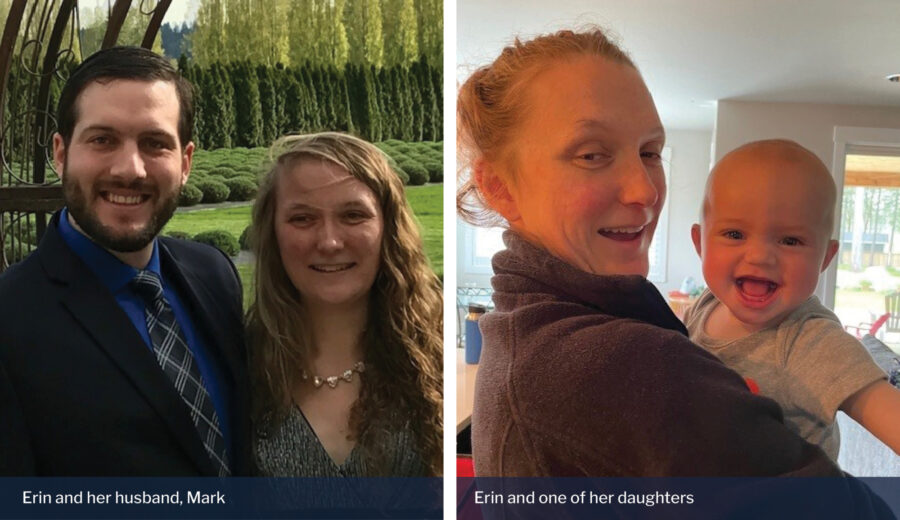
Erin relished her work in Washington, contributing to scholarly papers and journals with invaluable research and studying fish populations, insects, and the complex facets of waterways. Both the work and the life that she loved were cut tragically short on September 13, 2023. Ever true to her spirit of service, Erin was assisting another researcher in a survey on the Wind River when she lost her life in the line of duty.
When asked what motivated him to establish a research award in Erin’s memory, her father readily admits that the decision came from a place of grief. Not only had the academic world lost a bright light in Erin, but Erin’s memory had already begun to dim for her young daughters, as well. Though things were dark and rudderless for Trevor and the rest of Erin’s family, the words of fellow mourners at her funeral struck a chord with him.
Trevor PetersonPerson after person came up to me at the service – her coworkers, classmates, friends – and every one of them told me, she was important. She was important, and the work she did was important.
It was a notion that inspired the tiniest chink of purpose and hope during one of the hardest times in Trevor’s life. He and his wife sought out to better understand their daughter, visiting each of her alma maters and striving to see Erin’s work and passion through her eyes. Along the way, they met countless colleagues and friends that shared their daughter’s zest for natural science. Trevor asked questions, remained curious, and aimed to learn just what compelled Erin to study as she did. On one memorable occasion, he sat in on a conference with Erin’s past coworkers and researchers. Trevor looked around the room and thought to himself in wonder that it was like being surrounded by 50 Erins – all made possible by higher education.
“As my wife and I begin exploring this, it opened up new worlds, not only to understand my daughter’s world, but to understand the power and impact of college,” explains Trevor. “It was very enriching for us to go down this road, setting this up.”
Trevor and his wife opted to establish a research award in memory of Erin not only at South Dakota State, but at the other universities responsible for guiding her career. Inspired by the extensive field work his daughter led, he felt that no student should have to miss out on similar opportunities, simply because they might not be able to purchase the supplies or take the trip. The research award will offset that financial burden.
“Students often have to choose a major because of their financial position, and it should not be that way,” Trevor says. “Sometimes, it can make all the difference to be able to afford the equipment, a sleeping bag, a pair of boots.”
Erin’s boots-on-the-ground passion for all things nature will live on and fuel opportunities for lifelong learners who share her fascination – students who can relate to sketching critters, collecting bugs, and setting up camp to sleep next to their projects, all in the name of soaking up the experience.
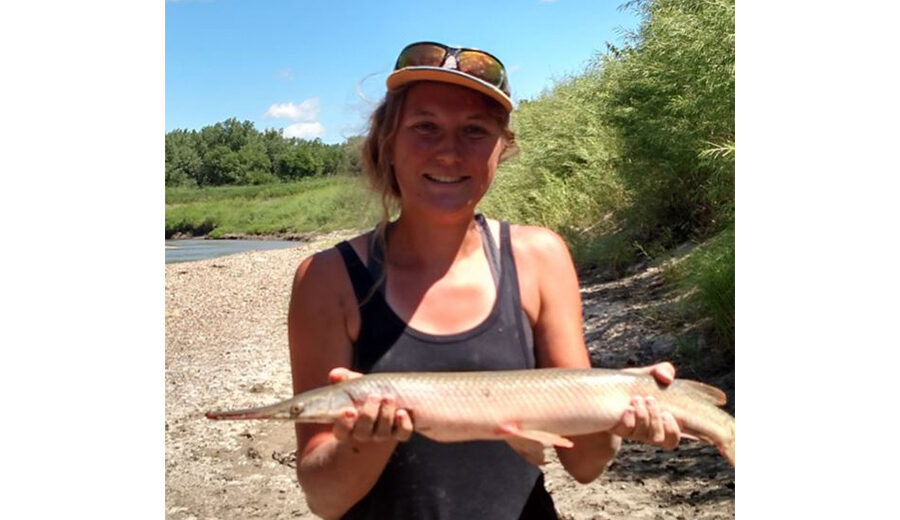
For Trevor, the Dr. Erin Peterson Memorial Research Award in Wildlife and Fisheries isn’t just about preserving a memory. It’s not just about remembering Erin as she was – a fish dangling from her outstretched hand, feet in the water, and a smile spread across her face. It’s about the ripple effect she started and allowing other Jackrabbits to pick up where his daughter left off.
“This work was so important, and she believed in it so much. I think she would be thrilled knowing that the kind of work she loved is carried on.”

